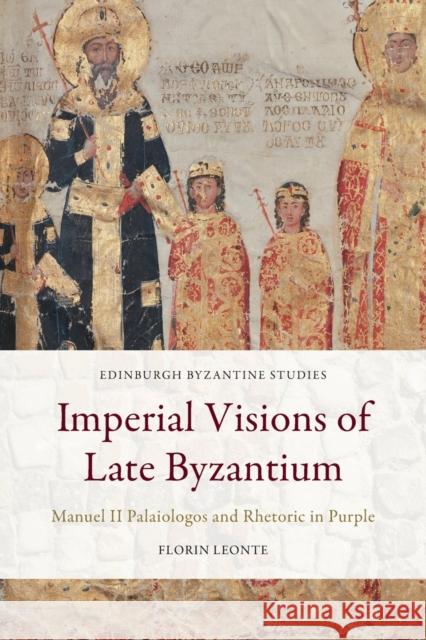Imperial Visions of Late Byzantium: Manuel II Palaiologos and Rhetoric in Purple » książka
topmenu
Imperial Visions of Late Byzantium: Manuel II Palaiologos and Rhetoric in Purple
ISBN-13: 9781474441049 / Angielski / Miękka / 2022 / 344 str.
Imperial Visions of Late Byzantium: Manuel II Palaiologos and Rhetoric in Purple
ISBN-13: 9781474441049 / Angielski / Miękka / 2022 / 344 str.
cena 138,30
(netto: 131,71 VAT: 5%)
Najniższa cena z 30 dni: 125,88
(netto: 131,71 VAT: 5%)
Najniższa cena z 30 dni: 125,88
Termin realizacji zamówienia:
ok. 30 dni roboczych
Bez gwarancji dostawy przed świętami
ok. 30 dni roboczych
Bez gwarancji dostawy przed świętami
Darmowa dostawa!
Kategorie:
Kategorie BISAC:
Wydawca:
Edinburgh University Press
Seria wydawnicza:
Język:
Angielski
ISBN-13:
9781474441049
Rok wydania:
2022
Dostępne języki:
Angielski
Ilość stron:
344
Wymiary:
23.423.4 x 15.6
Oprawa:
Miękka
Wolumenów:
01











